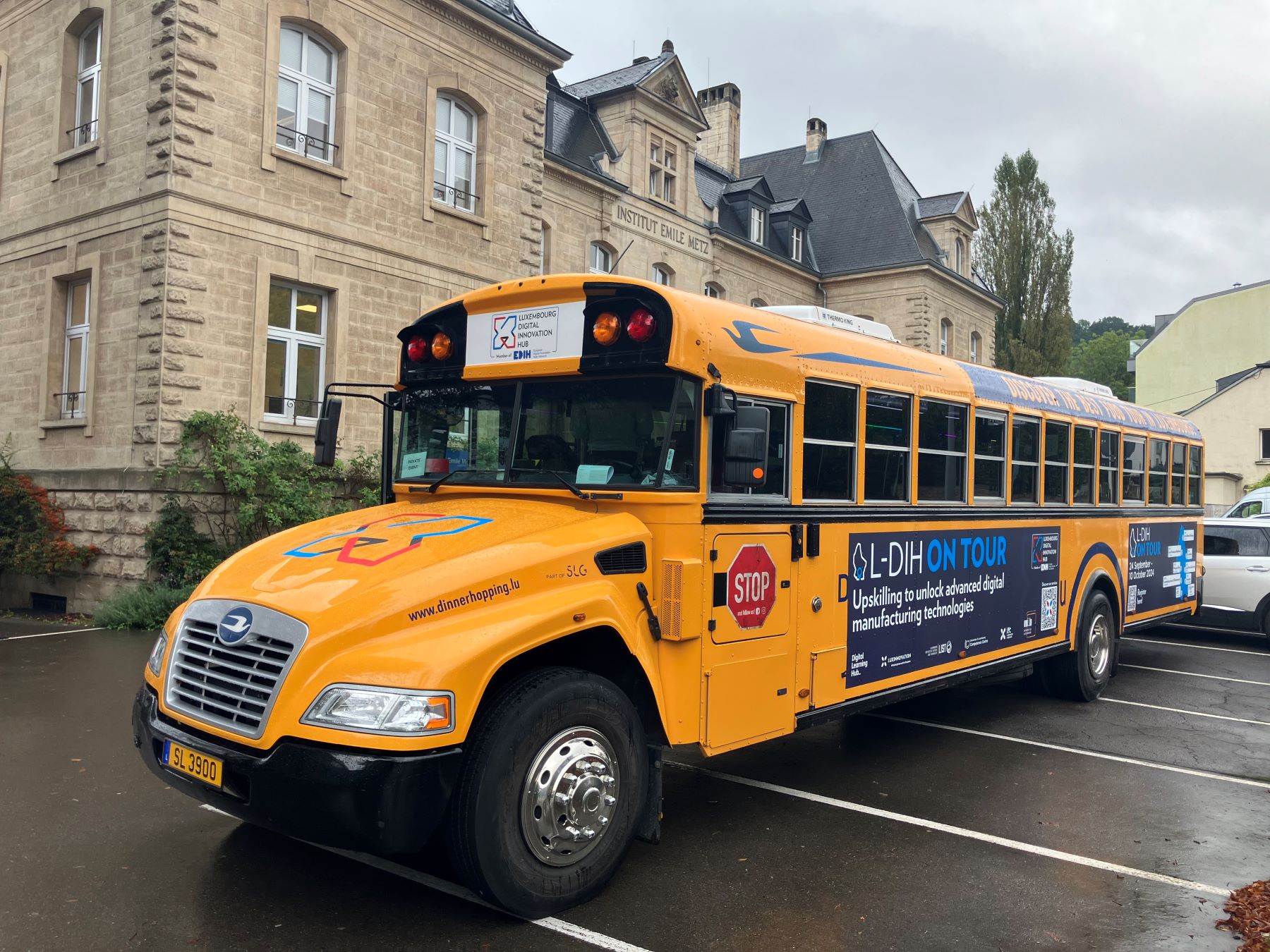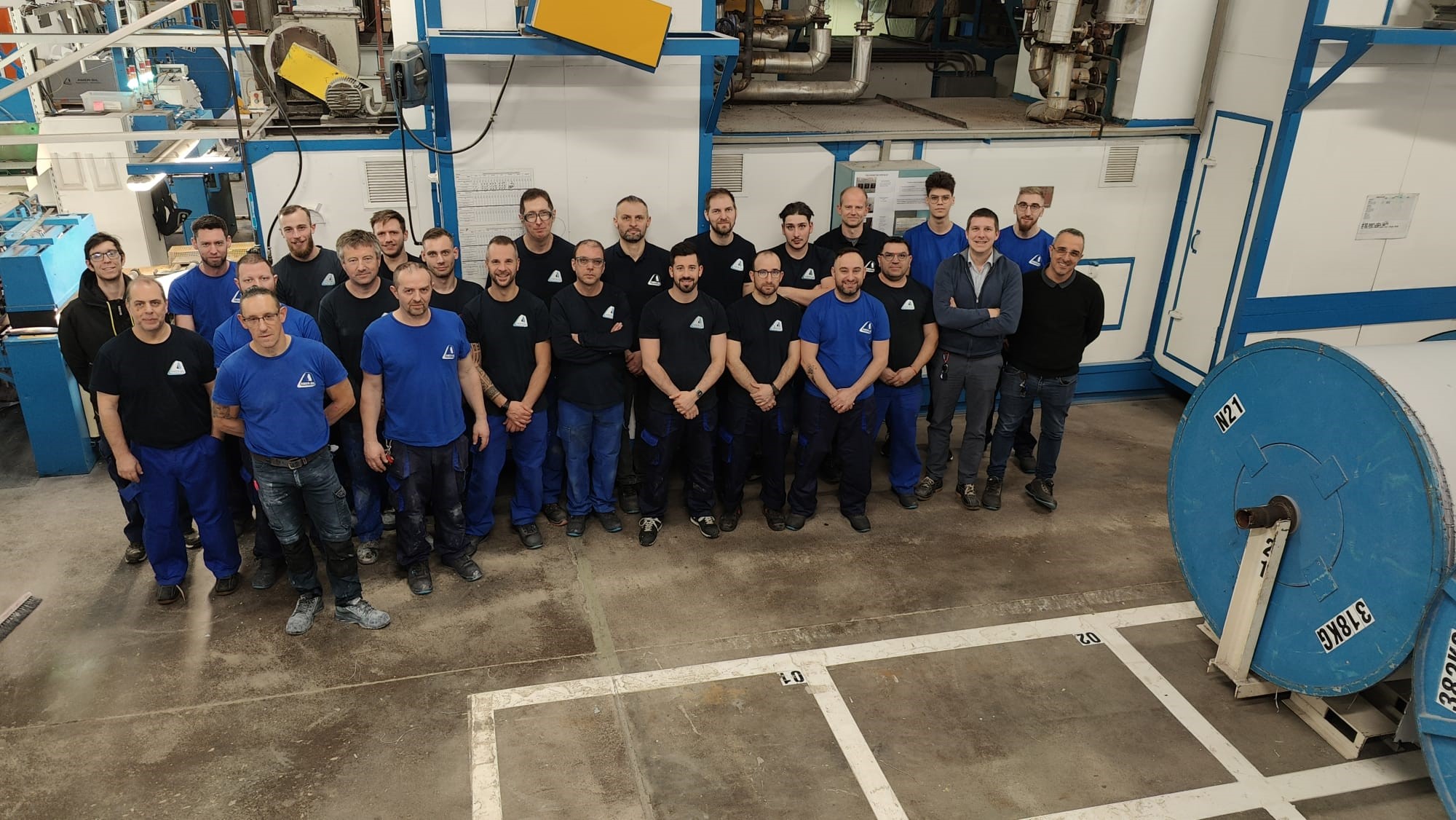A different L-DIH ON TOUR from factory floors to classrooms
The 2024 tour added a new dimension featuring visits to not just companies and institutions but also technical schools in Luxembourg nurturing future talents in industry.
.JPG?width=1800&height=1350&ext=.jpg)
In three weeks, the L-DIH ON TOUR, now in its fourth edition, visited nine strategic locations. Each visit, with a distinct focus, highlighted both the challenges and innovations of industry 4.0. “We spent time in industrial companies, technical schools (Lycée) and key institutions, interacting with various players enabling the digital transformation,” explains Mickael Desloges, Senior Advisor Digital Transformation at Luxinnovation, the agency managing the Luxembourg Digital Innovation Hub (L-DIH) responsible for organising the tour.
This year’s tour stood out for its variety, with visits in both Luxembourg and Saarland. In addition, key observations were made on transformations taking place at the grassroot level.
Automation in action
"Manufacturing companies enabled us to witness industry 4.0 in action. We saw the fully automated production line of battery component producer, Accumalux, which includes robots and automated guided vehicles. Cosmolux, producer of cosmetics and body care products, also showed us its fully automated warehouse built by KÖHL Maschinenbau,” recalls Mr Desloges.
Another ‘industrial’ visit took place at... the Philharmonie. It is certainly not an ‘industrial’ site, but its backstage is powered by machines and several advanced digital solutions handling complex tasks. Luxembourg entities, Waagner-Biro and Kreios, built the stage system for the Philharmonie but also many concert halls and theatres around the globe.
Attendees were keen to learn more about the latest industry trends.
Mickael Desloges, Luxinnovation
“We saw the process of lifting a complete stage of about 40 tons with instruments, people, materials and more. Even though it is not a factory, all the technologies and modern digital solutions behind the scenes are quite similar from an industrial point of view,” he adds.
Sharing experiences makes room for growth
The openness of companies to talk about their successes and failures is another dimension that marks this year’s tour. “Companies were happy to share their experiences, good and bad. They weren’t shy to point out what was easy and what was not so easy, which made the learning experience richer for everyone,” mentions Mr Desloges. “This made it possible to pinpoint some common challenges, even though these were three completely different locations, and to take note of some similar or completely different technologies being implemented,” he continues.
Upskilling for industry 4.0
One of the key themes of this year’s tour was skills development. Engaging with students and educators at the technical schools provided a vital link between classroom learning and the practical demands of modern industry. Several workshops were conducted during the visits to the technical schools on design thinking by the Digital Learning Hub (DLH), robot programming by by TechAcademy and high-speed internet by MyConnectivity.
It’s no longer just about manual labour but about programming, automation and problem-solving in an increasingly digital environment.
"The enthusiasm from the technical schools was very encouraging. Attendees were keen to learn more about the latest industry trends. The students were excited to discover that industries in Luxembourg are not just limited to finance but include diverse sectors from cosmetics to automotive manufacturing. It is essential to show young people what industry really looks like today—it’s no longer just about manual labour but about programming, automation and problem-solving in an increasingly digital environment,” underlines Mr Desloges
The National Institute for the Development of Continuing Vocational Training (Institut national pour le développement de la formation professionnelle continue - INFPC) presented its lifelong training programme, the DLH its training catalogue, while the University of Luxembourg’s Competence Center gave industrial companies a clear picture of the resources available to help train and upskill their workforce. "Whether it's in AI, coding, or cyber security, there are so many resources in Luxembourg that companies may not even be aware of. We received feedback from many participants who were surprised by how accessible these programmes are." This focus on training is central to L-DIH’s mission, ensuring that Luxembourg's industries remain competitive in a digital world. "It's about making sure that whether you're a student just entering the workforce or someone with 20 years of experience, there’s always an opportunity to upskill and stay current with the latest technologies," says Mr Desloges.
Long-term support
Another key takeaway from this year’s event is the importance of fostering more intimate relationships. "With the tour concluded, we're preparing for 2025, but we're also thinking about the end of 2024," Mr Desloges reveals. "One of the ideas we're exploring is smaller, more focused events with participants that share common challenges or technologies. The goal is to create lasting relationships and continue to support industrial companies over the long term."
It’s about being a partner to these companies, not just during the tour but throughout the year.
These smaller, more tailored events would allow for deeper collaboration and sharing of best practices across industries, ensuring that companies remain competitive and digitally advanced. "For us, it’s about being a partner to these companies, not just during the tour but throughout the year, helping them navigate their digital transformation," Mr Desloges concludes.

